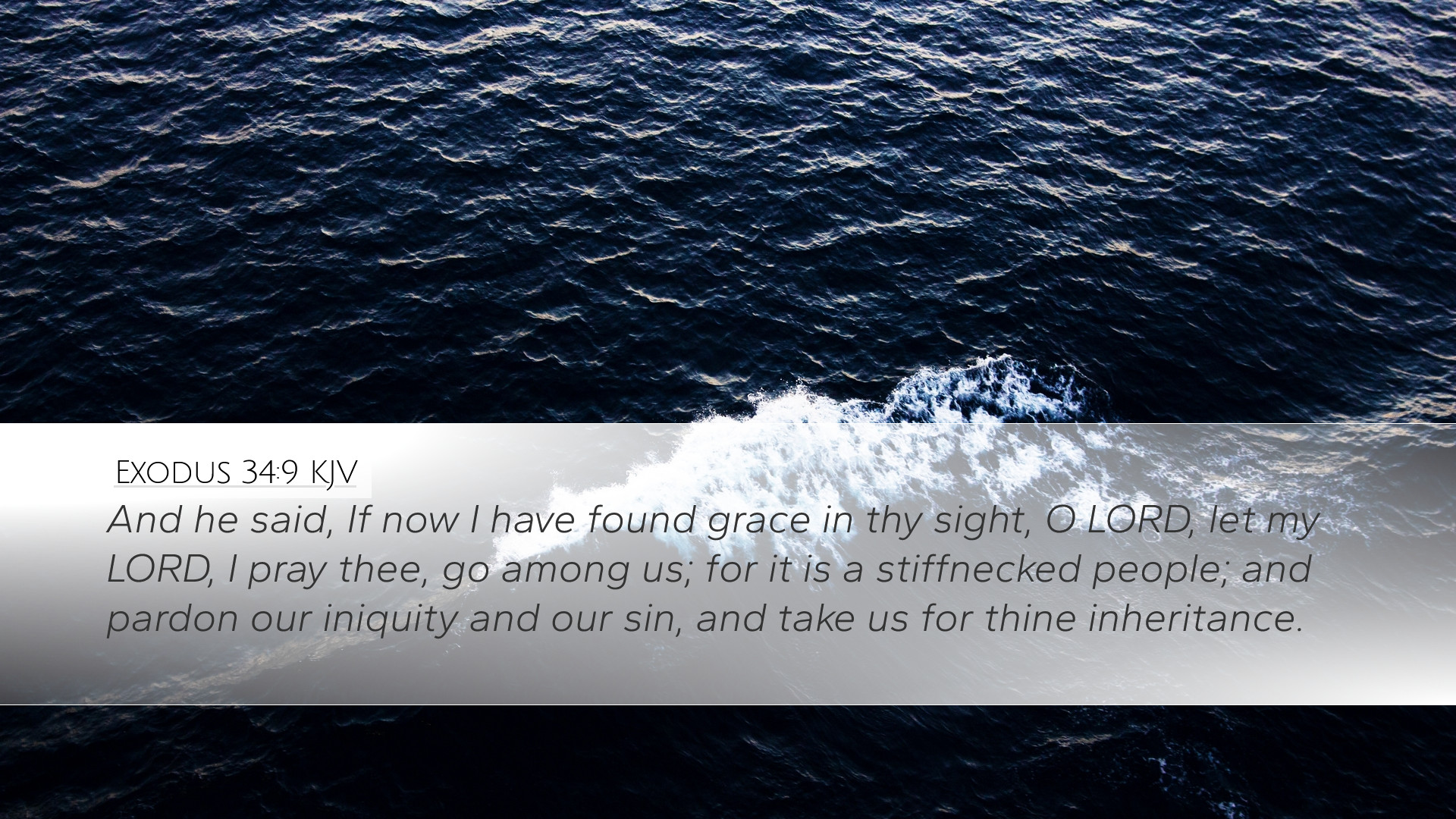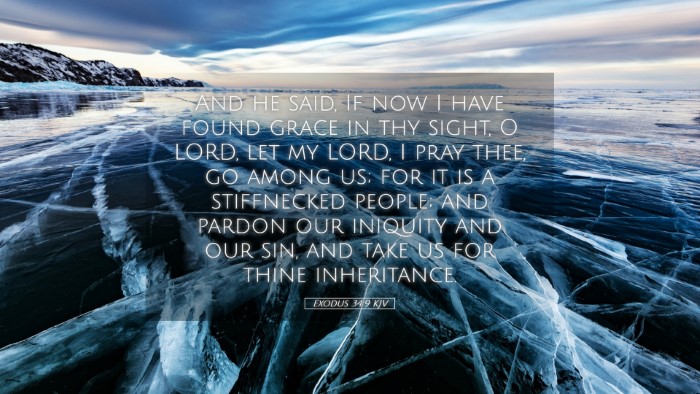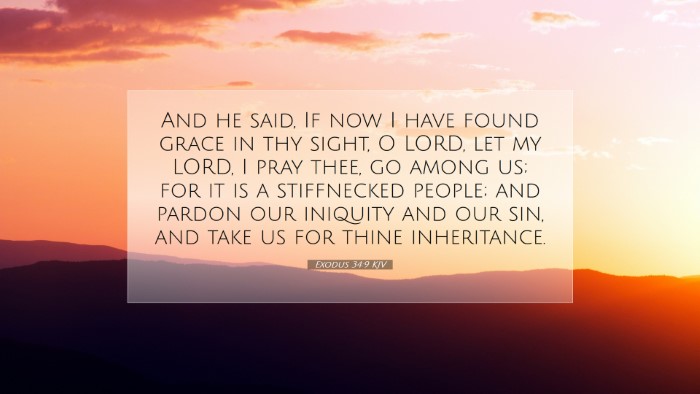Exodus 34:9 - Commentary and Insights
Exodus 34:9 states: "And he said, If now I have found grace in thy sight, O Lord, let my Lord, I pray thee, go among us; for it is a stiffnecked people; and pardon our iniquity and our sin, and take us for thine inheritance." This verse captures a moment of deep intercession by Moses on behalf of the Israelites, reflecting themes of grace, divine presence, and the nature of God’s people.
Contextual Background
The context of this verse is pivotal in understanding its significance. Following the sin of the golden calf, Moses has ascended Mount Sinai to receive a renewed set of tablets after breaking the first ones in response to the idolatry of the Israelites. God's revelation of His nature and covenant agreement with Israel underscores this poignant moment.
Moses' Intercession
Moses' plea shows a genuine recognition of both God's grace and the people's rebelliousness. The message of grace in this verse is paramount. Moses does not take the privilege of being in God’s presence lightly.
- Grace Acknowledged: The phrase "If now I have found grace" acknowledges that any favor bestowed upon the Israelites is solely due to God's mercy rather than their merit.
- Seeking Divine Presence: Moses' request for God's presence among them indicates the importance of divine connection among the people. Without God’s presence, they feel lost and inadequate.
- Recognition of Sin: Moses acknowledges the "stiffnecked" nature of the people, highlighting human tendency towards rebellion against God.
- Pardon and Inheritance: The intercession includes a plea for pardon and recognition as God's inheritance, suggesting a restoration of relationship and covenant.
Theological Implications
This verse provides rich theological implications concerning sin, grace, and God's relational dynamics with humanity. The various commentaries offer in-depth insights:
Matthew Henry’s Commentary
Henry expounds on Moses’ understanding of Israel’s unworthiness but emphasizes his bold approach towards God in seeking grace. He notes that Moses acknowledges the people’s “stiffnecked” nature but still dares to ask for God's presence. Henry highlights that true leaders intercede for their people, ever aware of their frailty and need for divine mercy.
Albert Barnes’ Notes
Barnes focuses on the concept of grace, asserting that it is God's decision to show favor that defines the relationship with the people. He explores the significance of pardon, suggesting that the act of intercession by Moses typifies the ultimate intercessor—Christ. Emphasizing the approachable nature of God, Barnes illustrates how through prayer, one may attain communion with God despite sinfulness.
Adam Clarke’s Commentary
Clarke reflects on the meaning of God going among the people, implying a relational God who desires to dwell among His people rather than remain distant. He also elaborates on "stiffnecked," drawing parallels to the unyielding nature of humanity in sin. His examination stresses the hope offered through pardon, foretelling the grace fully realized in Christ.
Practical Applications
The insights from this verse resonate profoundly with pastors and theologians, providing directives for life and ministry:
- Embrace Intercessory Prayer: Leaders are encouraged to intercede for their communities, recognizing the necessity of God's mercy and presence amidst human rebellion.
- Value of Divine Presence: The church must prioritize cultivating a relationship with God that is vibrant and aware of His proximity. This reminds believers that God desires to dwell with them.
- Recognition of Human Weakness: Understanding the “stiffnecked” nature of humanity helps foster empathy and compassion toward others. Ministry should be marked by grace given the recognition of personal and communal shortcomings.
- Hope in Pardon: Consistently preaching about God’s capacity to pardon sin encourages repentance and continual reliance on God’s grace.
Conclusion
Exodus 34:9 serves as a profound reminder of humanity's need for God's grace while highlighting the importance of intercession in the believer’s life. The combined insights from public domain scholars like Matthew Henry, Albert Barnes, and Adam Clarke underscore the depth of this verse for understanding God’s character and His relationship with His creation. Through Moses’ example, believers are encouraged to seek God's presence actively, acknowledge their sins, and fully embrace the gift of grace offered to them, seeing themselves as God’s chosen inheritance.


